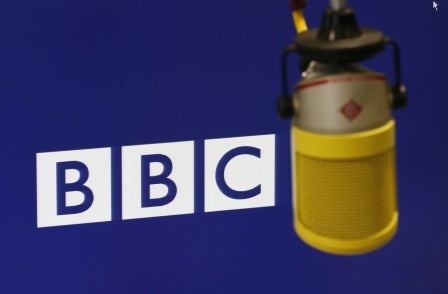
A BBC World Service journalist who claims he was sacked for favouring coverage about the plight of Sri Lankan Tamils has won an appeal and successfully argued that he was unfairly dismissed.
Chandana Bandara lost his job on 15 August 2014 after he declined to put a story out on the BBC Sinhala service website about the birth of Prince George.
He decided not to prioritise the royal birth story, partly – he said – because it was the 30th anniversary of Black July (a wave of anti-Tamil violence that saw thousands killed in Sri Lanka).
The tribunal appeal found that BBC bosses erred by giving him a final written warning following the Prince George incident, despite his previously good disciplinary record over the previous 18 years.
Among those to give evidence on his behalf were Callum Macrae, an award-winning documentary maker who has chronicled the targeting of civilian Tamils at the end of the Sri Lankan civil war in 2008/2009.
Asked for a comment, he told Press Gazette today: “I’m delighted that Bandara has been vindicated. This really was a shameful episode.
“It seemed very clear that the BBC Sinhala service gave the impression of toeing the government line, particularly when it came to the tragic events at the end of the war.
“Bandara’s attempts to tell the truth, a truth that’s now been vindicated by various UN inquiries, was stymied by editorial decisions which – for whatever reason – appeared to be consistent with the interests of the discredited government.”
Macrae’s documentary No Fly Zone chronicled how thousands of Tamil civilians were killed by government shelling at the end of the Sri Lankan civil war.
Bandara claimed he was unfairly targeted because of his belief that the Tamil people of Sri Lanka have been persecuted by the Sinhala-dominant government.
Most his colleagues were said to be of Sinhalese, rather than Tamil, heritage.
He said: “I am delighted and very relieved to have been vindicated by this result.
“Trying to tell the truth about what was happening in Sri Lanka in the face of constant criticism and editorial interference was a difficult and painful experience.
“Having to then spend two years trying to clear my name and restore my reputation as a committed and professional journalist was even worse.
“I’d like to thank everyone who believed in me and supported me throughout this process.”
A spokesperson for the BBC World Service said: “”The BBC takes disciplinary matters very seriously and we are disappointed with the outcome of this unfair dismissal claim.
“We note that the tribunal reduced the compensation awarded to Mr Bandara by 75 per cent and we will review the full decision of the tribunal carefully when it is available.”
A remedies hearing today was set to decide what compensation Bandara is entitled to.
UPATE:
Bandara was awarded £50,000 damages.
Email pged@pressgazette.co.uk to point out mistakes, provide story tips or send in a letter for publication on our "Letters Page" blog
